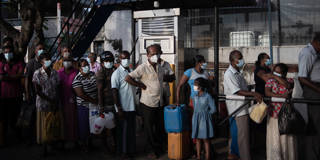Desperately Seeking a Mechanism for Sovereign Debt Restructuring
Past experience has shown that sovereign debt restructuring needs to be accompanied by reform programs to ensure future economic performance and debt sustainability. But in today's world, the emergence of new and more varied creditors has made the process more difficult, pointing to the need for a new global facility.

WASHINGTON, DC – When the economy is going well, the poor benefit more than others. But when things are going badly, it is the poor who are hurt the most. This is especially true in the case of the COVID-19 pandemic, which has hit poor countries – and the poorest people within them – especially hard.